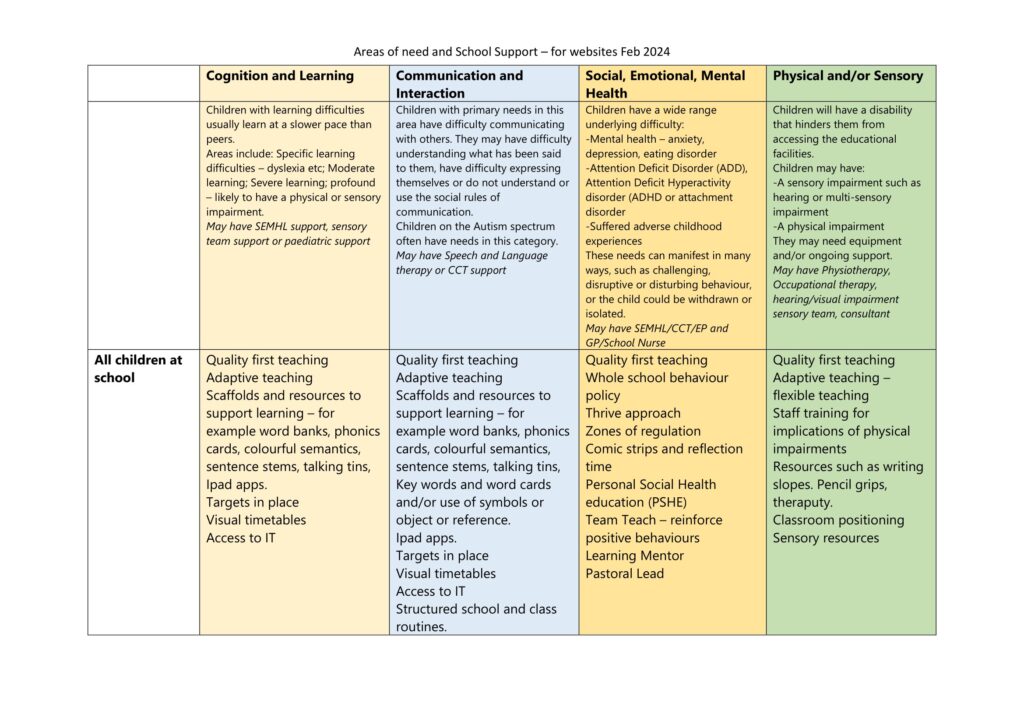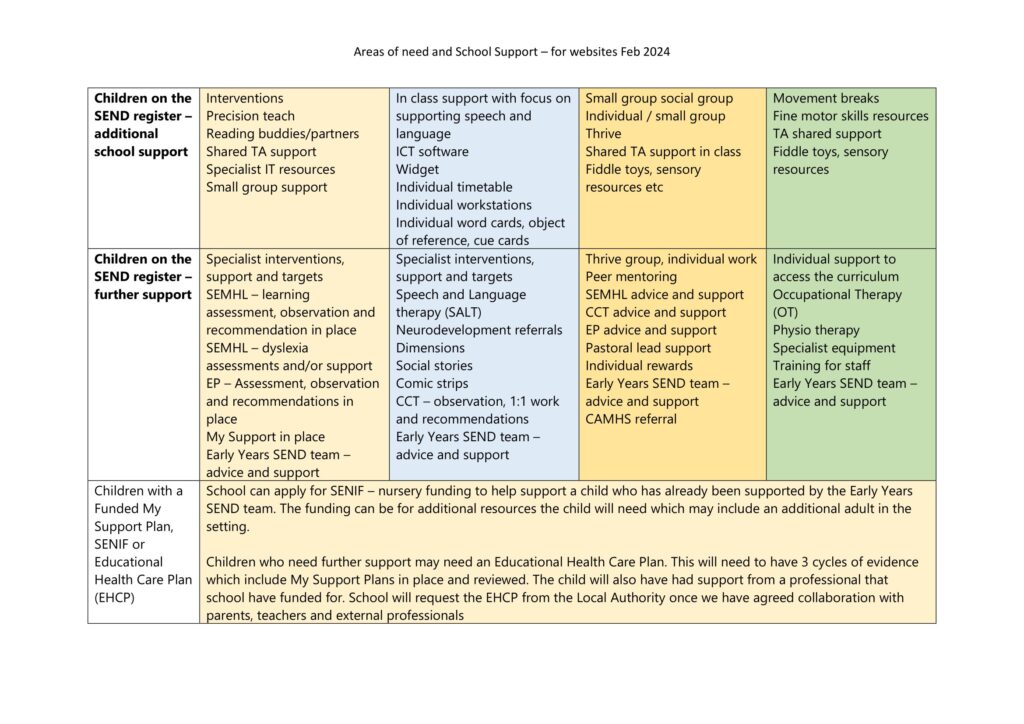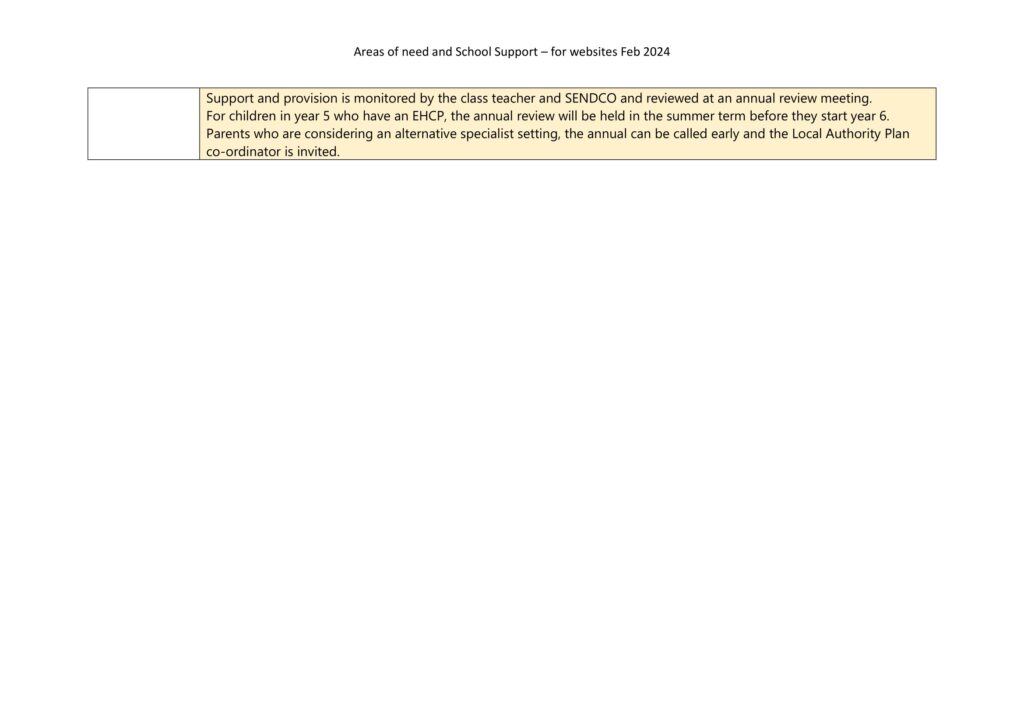Our School Local Offer
Stockingford Local Offer
Inspire is very proud of the curriculum it offers its pupils. It is designed to appeal to children with interesting and fun themes whilst providing a broad and balanced approach to learning, which is differentiated to meet individual needs and abilities. In order to do this many steps are taken to support them through their learning journey. We provide a quality first teaching approach; however, for some children there are occasions when further additional support may be needed to help them achieve and progress.
For children identified with a special educational need (SEN), the Code of Practice has four broad categories:
- Communication & Interaction
- Cognition & Learning
- Social, Emotional and Mental Health (SEMH)
- Physical/Sensory
When children have been identified as having SEN, with parental permission they are added to the SEN register under the following categories:
- SEN Support (K)
- EHCP – for children with significant SEN – this is a smaller number of children
For all children with SEN, schools need to remove barriers to learning and put effective special educational provision in place. This is done through a clear assessment of need with identified areas for support known as the ‘Graduated Approach.’
The ‘Graduated Approach’ is a four part cycle through which earlier decisions and actions are revisited. Over time, this leads to a greater understanding of the child’s needs and how best to support learning.
The four stages of the cycles are:
• Assess • Plan • Do • Review.
The Graduated Approach at Stockingford
Assess

Assessments of children’s needs are made through a whole child approach. In class teachers are constantly assessing the children through verbal feedback, written work and termly testing. These assessments feed the academic profile along with seeking to views of children, parents and class teachers. The Head Teacher/ SENCo meets with teachers to talk about progress and discuss the provision and interventions required to close gaps where underachievement has occurred and where special educational needs are identified.
Plan
Inclusive Quality First Teaching is the first step to responding to a newly identified need. The focus of this is to ensure that high-quality teaching, that is differentiated, is accessible for individual pupils. Sometimes there is additional support planned through interventions. These are delivered in small group or on a one to one basis outside of the classroom. Interventions are planned and the impact of learning tracked carefully by class teachers and teaching assistants.
Do
Every teacher is responsible and accountable for all pupils in their class wherever or with whoever the pupils are working. Teachers work closely with Teaching Assistants and other specialists to plan and assess the impact of targeted interventions. To facilitate this, Teachers and Teaching Assistants are provided with opportunities for joint planning. This is vital to ensure all learning opportunities are exploited.
Review
Teachers monitor the progress of all pupils in their class, including those with SEN. Each term they meet with a member of the senior leadership team to discuss progress. They also meet with the SENCo to review targets. At the heart of the review process, is the child. Teachers meet parents to discuss progress towards targets. As children mature they are encouraged to take a greater role in reviewing their own progress and setting new targets.
Provision at Stockingford
Parents have asked for an idea of the different things we do at school to help children with different levels of need in different areas. To meet the needs of the individual we need a flexible approach and we are constantly looking for new ways to support SEND. Below are some examples of the graduated approach we use to support all learning within our school.
To further support Parents, a SEND coffee morning/afternoon is held monthly with a clear focus for the meetings. We welcome all parents to these meetings where there are opportunities to meet with the SEND Team at Stockingford Academy. We also welcome suggestions for further parent sessions.




